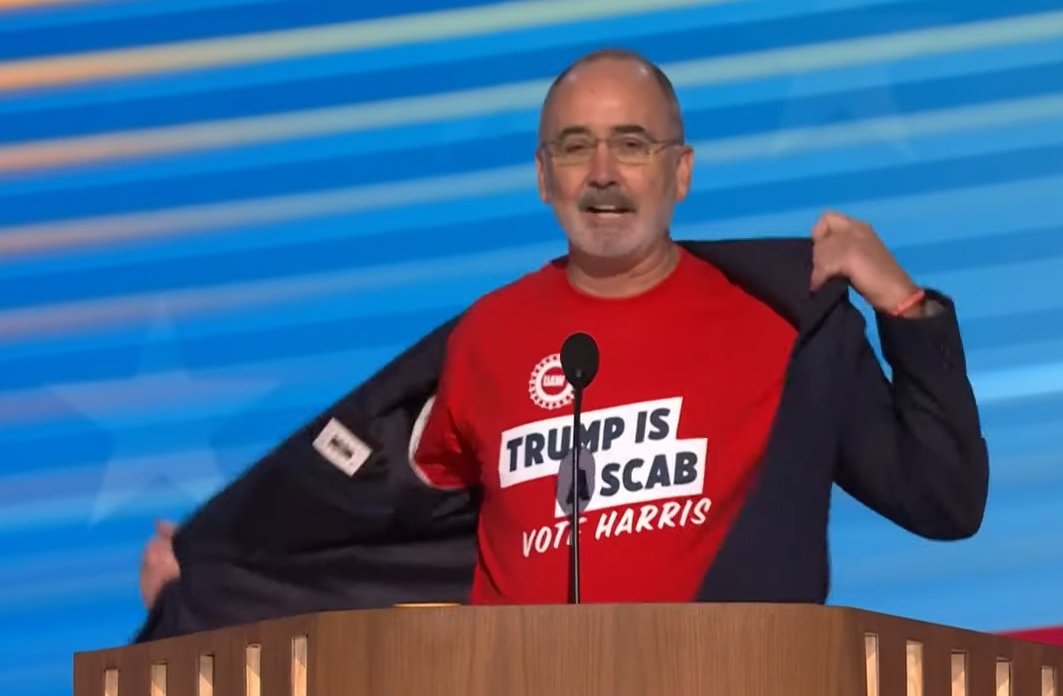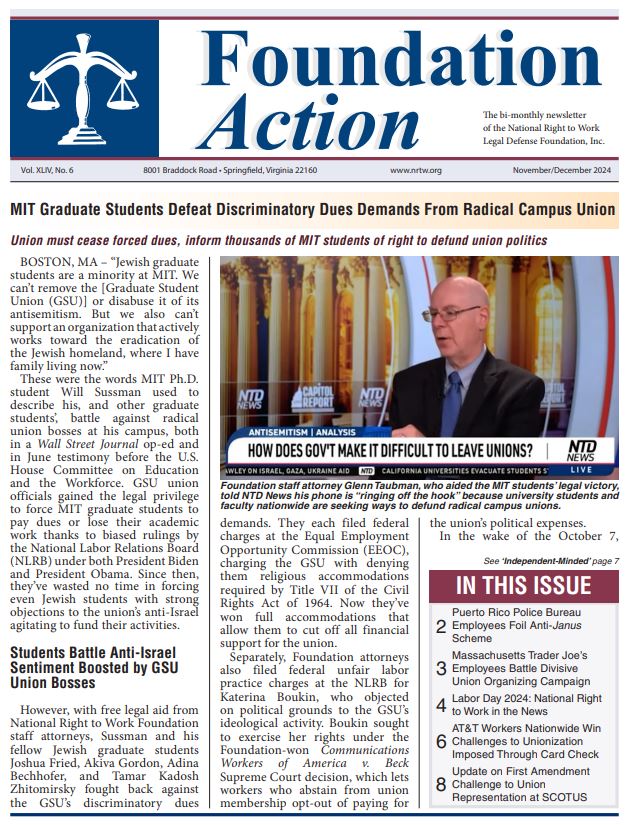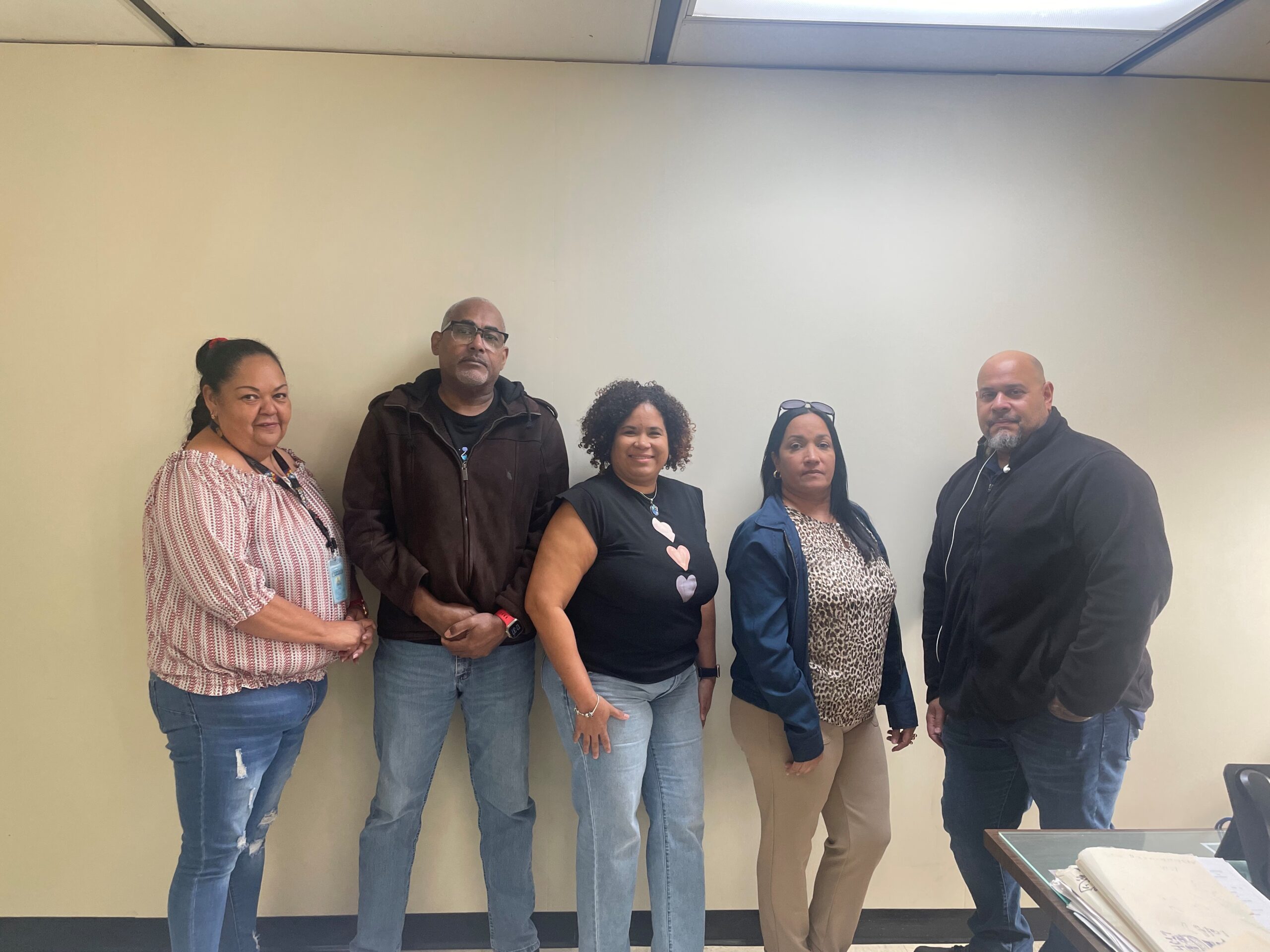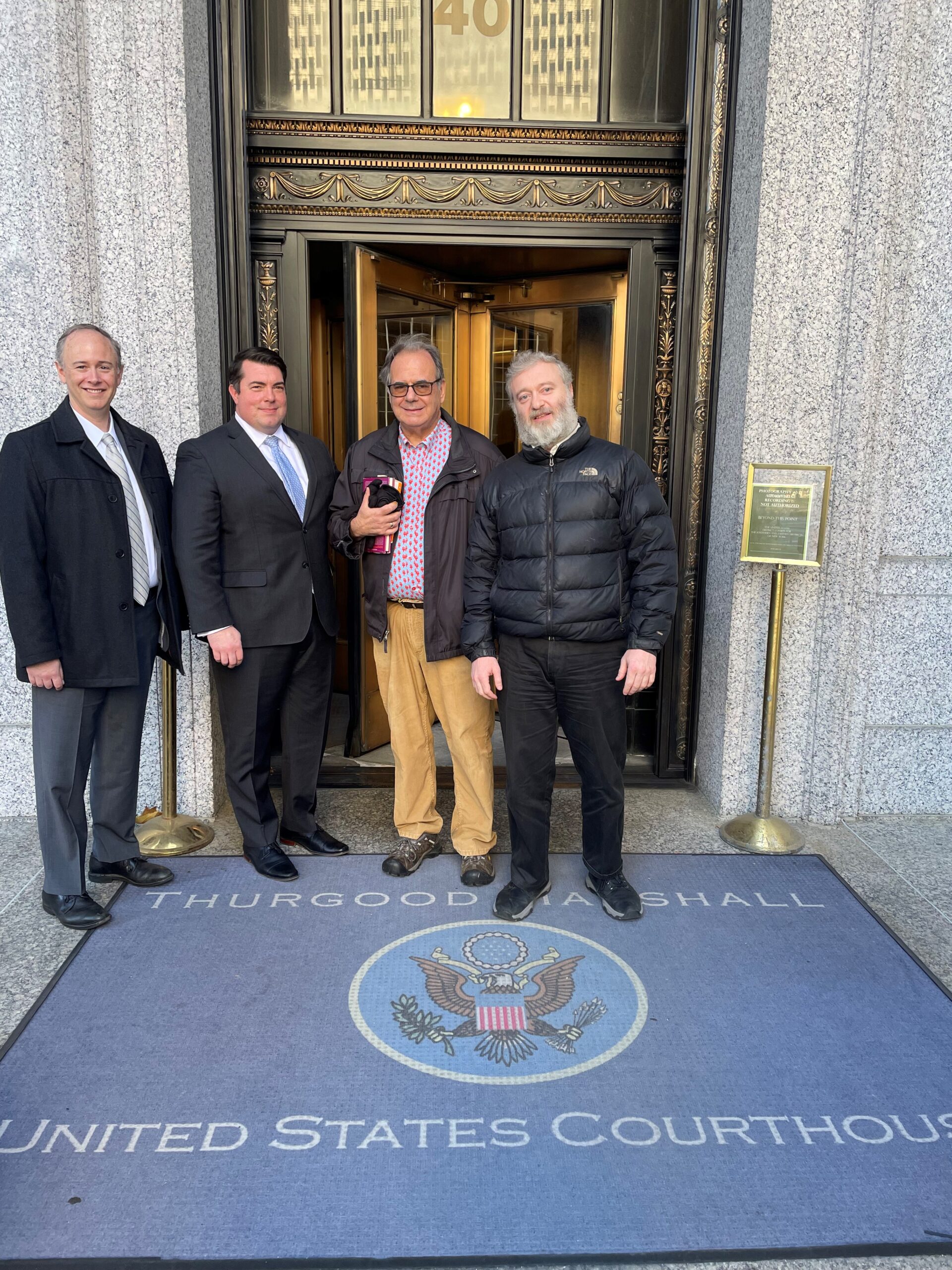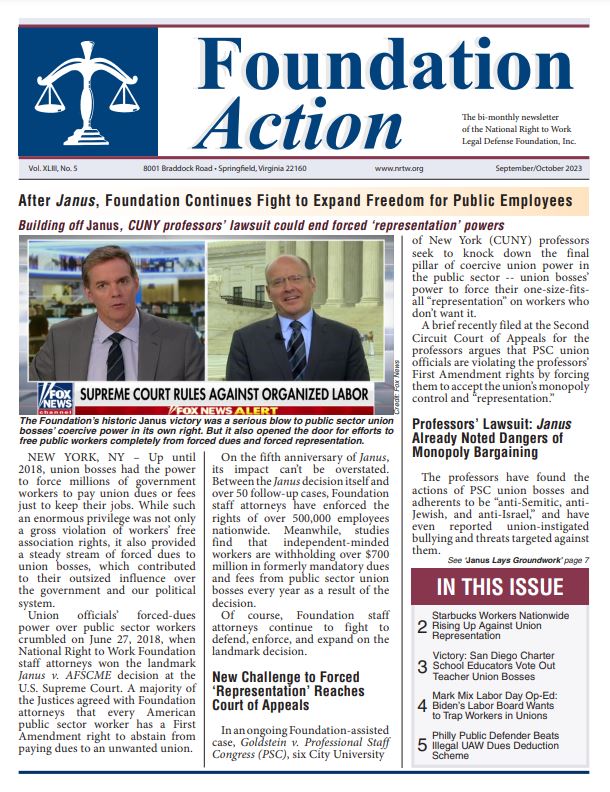Flight Attendant Asks SCOTUS to Hear Case Challenging Union Boss Scheme to Discriminate Against Nonmembers
Petition: Ninth Circuit wrongly ruled that federal labor law lets union officials take away on-the-job benefits for refusal to pay union fees
Washington, DC (April 23, 2025) – Flight attendant Ali Bahreman has just filed a petition asking the U.S. Supreme Court to hear his case challenging a Transportation Workers Union (TWU) contract that deprived him of his ability to use his seniority to bid on flight assignments and secure other valuable job benefits. Bahreman, who refrained from formal union membership, is arguing that a union monopoly contract between Allegiant Airlines management and TWU union bosses violated the Railway Labor Act (RLA) by conditioning flight attendants’ “bidding privileges” on their payment of fees to the union.
The RLA governs employment arrangements like Bahreman’s in the rail and air industries. The RLA is a federal law that permits union officials and employers to enforce so-called “union security agreements” that require workers in a unionized workplace to pay union fees to keep their jobs.
Bahreman’s petition points out that although the RLA grants union officials the power to enter into contracts that require payment of union fees as a condition of employment, it has long been illegal for unions to enter into contracts that otherwise discriminate against certain classes of workers, like nonmembers. This goes all the way back to the 1944 Steele Supreme Court precedent that created what the court called the “Duty of Fair Representation” (DFR) in order to save the RLA from being declared unconstitutional after union officials used their power to impose a contract that discriminated against workers based on their race.
The petition argues that not only does the Ninth Circuit Court of Appeals’ decision upholding the discriminatory scheme conflict with opinions from other federal courts of appeal, but if left in place, the decision calls into question the constitutionality of union exclusive bargaining powers under both the RLA and the National Labor Relations Act (NLRA):
“Having unraveled the DFR, the Ninth Circuit’s decision allows unions to wield congressionally delegated exclusive representation power without the DFR’s limitations. That raises ‘serious constitutional questions’ regarding exclusive representation’s constitutionality…
“Ensuring that the Ninth Circuit’s decision does not dismantle employees’ RLA and NLRA speech and associational freedoms from forced unionism is of national importance. The Ninth Circuit’s decision jeopardizes employees’ ability to do their jobs free from union coercion, hostility, and discrimination in the workplace.”
Petition Exposes That Lower Court Decision in Favor of TWU Allows Union Bosses to Discriminate in Workplace
The petition comes after the Ninth Circuit Court of Appeals puzzlingly ruled that the RLA permits union officials to enforce contracts that require employers to eliminate on-the-job benefits from workers who refuse to pay union fees. Bahreman’s petition goes on to explain that the Ninth Circuit’s reasoning greenlights discrimination by union bosses in their treatment of union members and nonmembers, which flies in the face of the duty of fair representation that federal law imposes on all union officials.
Federal law permits union officials to extend their monopoly bargaining powers over all workers in a unit, including those who oppose the union, but requires that union officials not discriminate against nonmembers. Therefore, the petition says, monopoly bargaining itself should be reexamined if the Ninth Circuit’s ruling is upheld.
“Mr. Bahreman’s case shows how deep the rabbit-hole of union boss legal privileges goes,” commented National Right to Work Foundation President Mark Mix. “The Ninth Circuit’s decision turns the U.S. Supreme Court’s ‘duty of fair representation’ on its head, and exposes the underlying constitutional tensions that the Court identified long ago in the 1944 Steele High Court decision.
“Originally created in Steele as a bulwark against union bosses wielding their monopoly representation and forced dues powers to discriminate, the Ninth Circuit’s reinterpretation of the DFR doctrine allows union officials to engage in discrimination to coerce fee payment from union dissidents,” added Mix. “The Supreme Court should take Mr. Bahreman’s case to settle the circuit split and make it clear that Big Labor officials cannot wield their extraordinary government-granted powers to undermine the working conditions of workers who oppose union affiliation.”
Right to Work Foundation SCOTUS Brief: Workers Exercising Right to Oppose Unions Isn’t “Harm” to Be Eliminated
In case to be heard by Court, Foundation argues NLRB wrongly asserts that independent-minded opposition to unions can justify injunctions
Washington, DC (February 29, 2024) – The National Right to Work Foundation has filed an amicus brief in Starbucks Corporation v. McKinney, a case set to be argued before the U.S. Supreme Court later this term that has major implications for the rights of workers who oppose union power in their workplaces.
In the brief, Foundation staff attorneys argue that federal courts should reject National Labor Relations Board (NLRB) requests for preliminary injunctions when the Labor Board claims employee discontent with a union is a “harm” that should be redressed. These injunctions, called 10(j) injunctions, are frequently used by the NLRB to force employers into certain union-demanded behavior, despite the NLRB not having fully adjudicated the underlying union allegations.
The brief points out that an employee’s decision not to support a union is not a harm that needs to be addressed, but rather a “legitimate choice employees have a right to make” under both the National Labor Relations Act (NLRA) and the First Amendment to the Constitution.
“Only if the NLRB can prove an employee was coerced by an employer to oppose a union against his or her will can that employee’s lack of support for the union be considered any sort of a harm to be redressed,” the brief says. “If the NLRB cannot muster such evidence, then the fact that employees are exercising their statutory and constitutional rights…provides no basis for [an] injunction.”
Foundation: Courts Shouldn’t Accept NLRB’s Assumption that Workers Want to Join Unions
In the Starbucks v. McKinney case, the NLRB sought an injunction at the behest of Starbucks Workers United (SBWU-SEIU) union officials against Starbucks for unfair labor practices the company allegedly committed at a location in Memphis, Tennessee. A major reason cited by the NLRB for the requested injunction was the fact that workers may choose to oppose the union if the injunction isn’t issued.
The case presents the question of what standard courts should use when evaluating whether to grant NLRB-requested injunctions under the NLRA. The Foundation brief opposes the lax standard that the NLRB and union officials are urging courts to use when deciding whether to issue injunctions.
That standard asks only whether alleged unfair labor practices could potentially coerce workers into not supporting a union. Foundation attorneys argue that “the Court must require the NLRB to prove employees were unlawfully coerced not to support a union because, absent such proof, employees have every right to make that choice” (emphasis added).
Foundation-Backed Starbucks Workers Disprove Specious NLRB Theory
Foundation staff attorneys are currently representing Starbucks employees at several locations across the country who seek to vote out (or “decertify”) the SBWU union. In the brief, Foundation attorneys point out that the NLRB in a similar case (Leslie v. Starbucks Corp.) cited a Foundation-backed union decertification case as a reason that an injunction should be issued against the company – despite the fact that the workers themselves say their opposition to the union had nothing to do with the conduct the union was challenging in that case.
“In taking this position, the NLRB has created a self-satisfying ‘heads I win, tails you lose’ dynamic for itself,” the brief reads. “Evidence that employees support a union is taken to mean they want to support the union. Evidence that employees oppose a union is taken to mean their employer must have wrongfully caused the employees not to support the union. All evidence conveniently leads to the conclusion desired by current NLRB leadership: employees should support unions.”
The case is set to be argued before the Supreme Court on Tuesday, April 23, with a decision expected by the end of the High Court’s term in June.
“The Biden NLRB is working hand in glove with unions to advance a standard that treats worker dissent from unions as a harm to be eradicated, rather than a decision made by competent adults,” commented National Right to Work Foundation President Mark Mix. “The Supreme Court in Starbucks v. McKinney must reject the idea that NLRB bureaucrats can simply twist evidence of legitimate worker discontent with unions into a tool to aid union bosses in gaining leverage over businesses and employees.”

